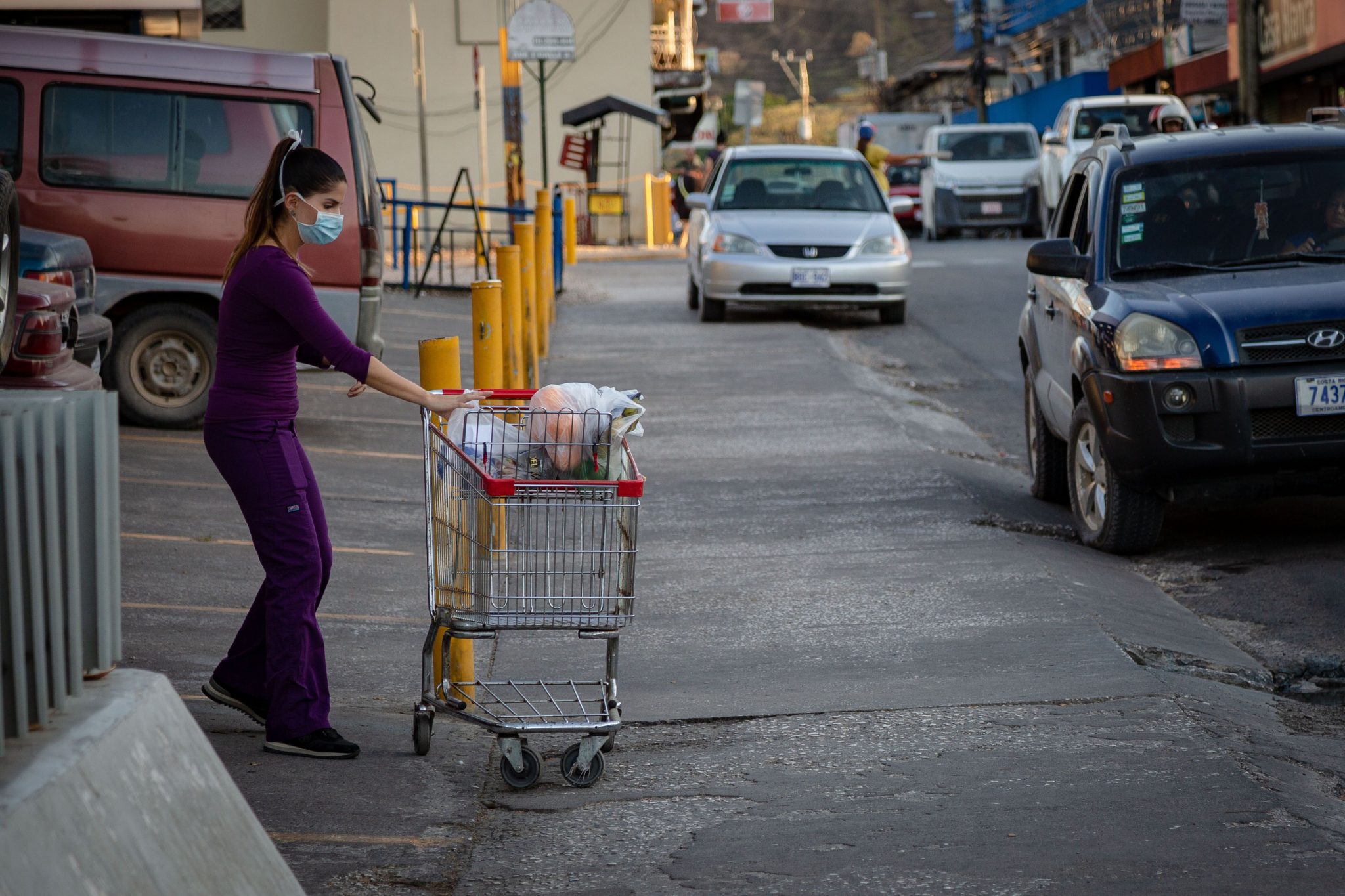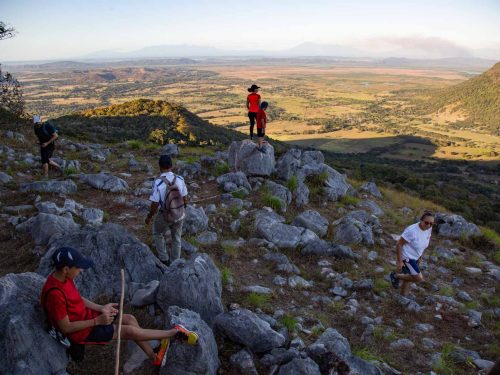
Jonathan Leal, from Liberia, stopped working as an Uber driver two weeks ago, when he returned the car he was renting to offer his services on the application. He fears being infected with Covid-19 in a business that is just not profitable anymore. He was barely making ₡10,000 a day, which he spent almost completely on gasoline and the rental fee.
Before the pandemic, Leal could earn that same amount in just two trips from the Liberia airport to a tourist destination in Guanacaste, but now he sees that as a thing of the past. He’s not receiving any sort of income at the moment, and he is still paying off the debt he owes for the rental fees accrued against him during the days where the earnings were just not enough.
Leal is one of the 28,000 informal drivers who operate for Uber in Costa Rica, and who technically stopped working because of the crisis. But he also belongs to a group twice as vulnerable, for he did not even own the car he drove for work.
In addition, Costa Rica has not legalized Uber or any other ride sharing platform like that, so drivers like him cannot benefit from the exceptions to the strict vehicular restrictions during the pandemic.
Leal is a young man, and he assures he does not even have any chronic disease, but his voice trembles when he thinks about the possibility of getting sick.
Making some money does not equal putting my health at risk,” he says.
Leal says he used to clean the car constantly, and went home every two hours to shower… but still, anyone could get into his car: from people obsessed with security measures, to deniers of the pandemic.
Compared to the Great Metropolitan Area, Guanacaste does not have high infection rates of Covid-19. There are only 13 confirmed cases, and until today, 11 people have recovered. Liberia, where Leal lives, had one confirmed case, but was released last week.
However, the province does experience an acute crisis due to the impact on tourism and agriculture, the two industries that employ most of the people in the region.
Double the insecurity
As a service, Uber itself is not regulated under Costa Rican laws yet, with to companies or individuals who have made a business out of it.
Leal, for example, says he paid ₡ 130,000 a week to a family that has more than 15 rental cars in Liberia. During the sanitary emergency, the fee dropped to ₡ 80,000. However, the payment was still unsustainable for the driver.
According to his calculations, just before unsubscribing from the platform, he made between ₡ 10,000 and ₡ 15,000 a day. That was barely enough to pay for gasoline and to cover the weekly rental fee. Whenever he couldn’t meet the cut, the debt was passed on to the following week.
I decided to return the car because I am falling into debt, and I do not have the power to risk having a debt and getting sick from this. I did not expect this to happen to me at this time,” he emphasizes.
“Staying home is not a possibility”
Juan Contreras has been an Uber driver for six months. He drives more than eight hours every day up and down the central district of Nicoya, but business has been bad for more than a month: he makes only about₡ 10,000 of the ₡ 30,000 he would normally do every day… if we weren’t facing a crisis.
With that, he has enough to buy some food and cover the gas expenses for the day, but he says that it is better to earn even just a little money than not working at all. According to him, since Costa Rica announced its first case of Covid-19 , on March 6, the demand for this ride sharing service has dropped dramatically because of all the people who are quarantined at home. However, the application has not yet released any official data to verify this.
But for the driver, staying at home is not an option. His family’s only source of income is Uber. Due to thiscrisis, he had to quithis main job.
Amid the Covid-19 emergency, Uber donated a bottle of hand sanitizer – one that costed less than ₡ 2,000 and told drivers that if one of them would catch the disease, the company could give them a small financial contribution. However, the application will continue to charge the same commission as always (15%) on all trips.
Contreras, resigned, says he did not expect more. He knows that he is an informal worker and that leaving during the pandemic is entirely his responsibility: “Of course I’m afraid of getting sick. But it’s scarier that my daughters do not eat today ”.
During Easter, the profits of all the sectors linked to tourism increase significantly, and Uber is no different. Both Leal and Contreras compare the season with the Santa Cruz festivals, where they normally make around ₡ 150,000 a day.
Contreras, for example, had calculated that after the holidays he could start building his house, using the extra profit and his year-long savings. Now he is using those savings to support his family while he cannot bring more money home.
Leal planned to buy his own vehicle, buthe is now using that money to supporting himself while unable to work.
Neither of them is registered with the Costa Rican Social Security Fund (CCSS) or with the National Insurance Institute (INS), the core social safety net in the country. These are not requirements to offer your services on the ride sharing app. Neither does Uber offer medical assistance or savings to its employees.
According to its website, Uber Costa Rica has taken five measures in the face of the pandemic: supporting and following the orders of public authorities in all the countries where the app is active, encouraging drivers to keep the vehicle clean, developing dynamics to make food deliveries without direct contact, cancelñing driver accounts infected with Covid-19, and keep each driver’s level as it was before the crisis.
Can Uber drivers participate in the Proteger assistance?
Contreras says he will eventually have to stop working. “If the cases continue to increase, it may infect me and therefore infect my daughters,” he fears.
One of the biggest doubts of both drivers is if they, as members of an informal workforcey, could also benefit from the Proteger support program, the financial aid the government is giving to all those whose income has been affected by the emergency.
According to the press department of the Ministry of Labor, they are fully eligible. Drivers will have to register as informal workers and make an affidavit saying that their earnings have been sharply reduced by the crisis.
Having social security is not a requirement and they will have no consequences when admitting that they have worked for the Uber app.
Meanwhile, Leal and Contreras expect their earnings to improve. While one will continue to circulate throughout the center of Nicoya, the other waits with his family until it’s safer to go back to work.
Both are draining their savings,and they have no plan to move on to. “The plan is that there is no plan,” says Contreras.







Comments